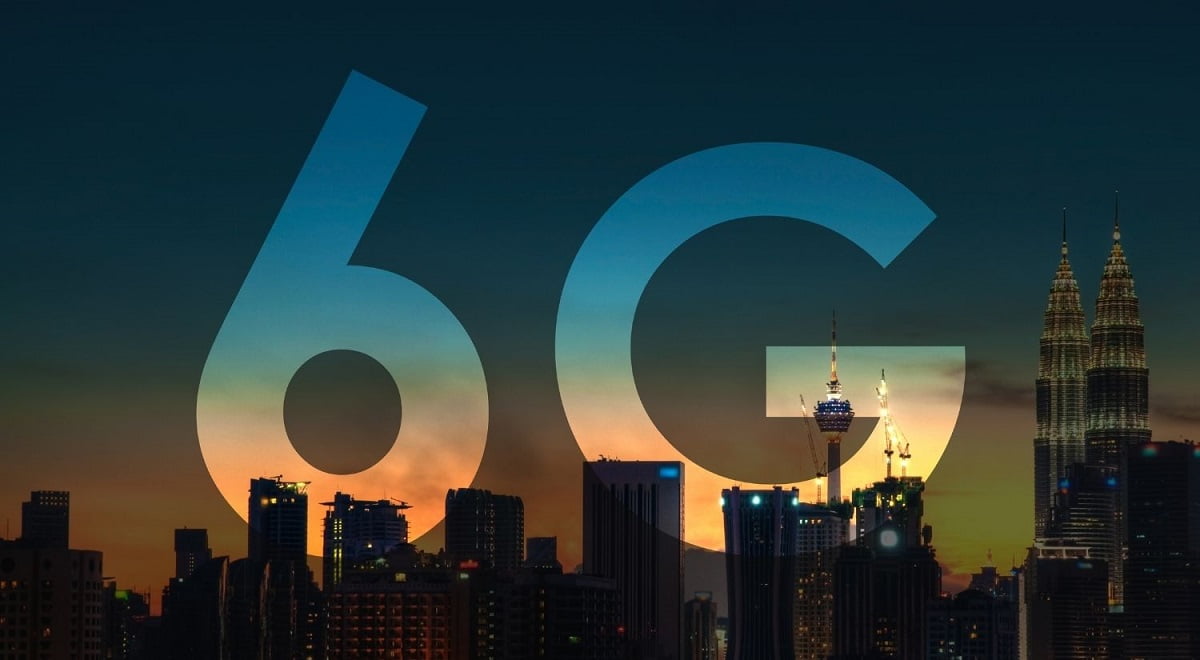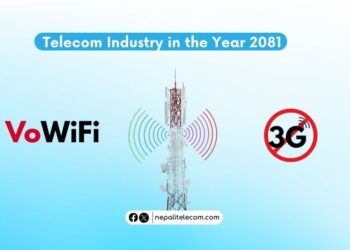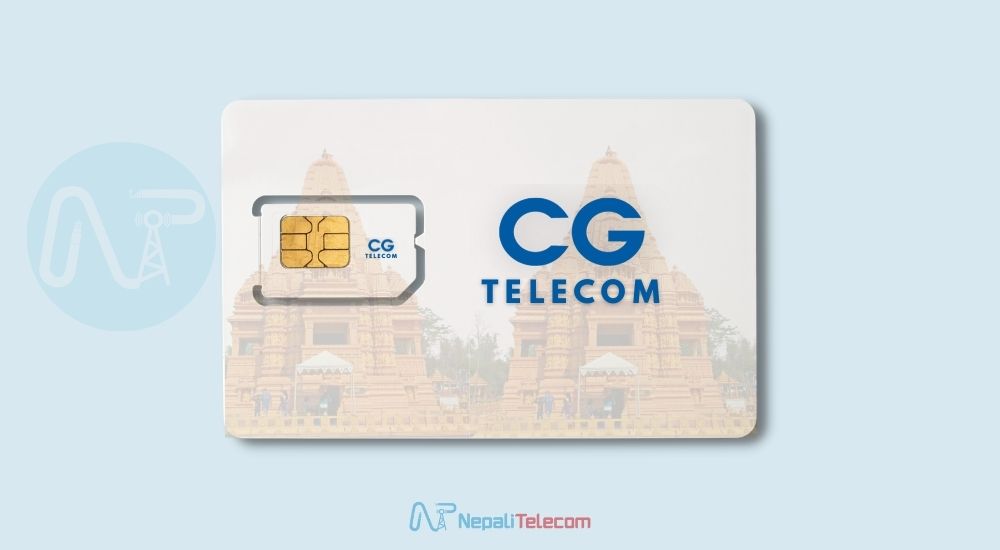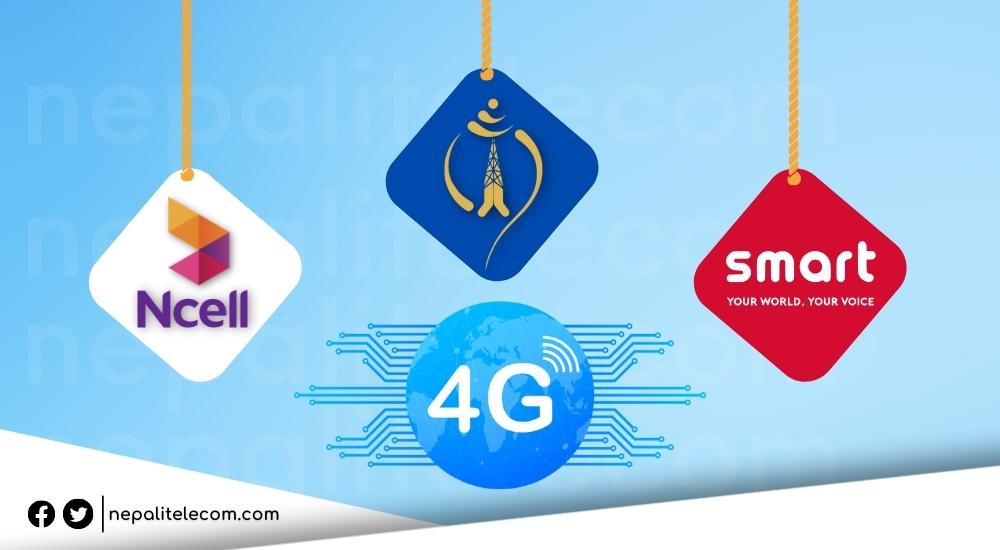The 6G network test demonstrated incredible potential of the terahertz spectrum that could even supersede the promised 5G broadband speed.
Samsung Electronics announced that they had successfully demonstrated a 6G test in collaboration with the University of California, Santa Barbara (UCSB). The customized 6G test was operating in 140 GHz (terahertz spectrum) which could hold the key to outspeed the current high-flying 5G network.
A team of researchers from the University of California, Santa Barbara, Samsung Research, and Samsung Research America had teamed up for this 6G workshop on Terahertz communications at the IEEE International Conference on Communications. Their test highlighted how terahertz frequency could unleash the 6G’s broadband potential to new heights outshining the fifth-gen broadband.
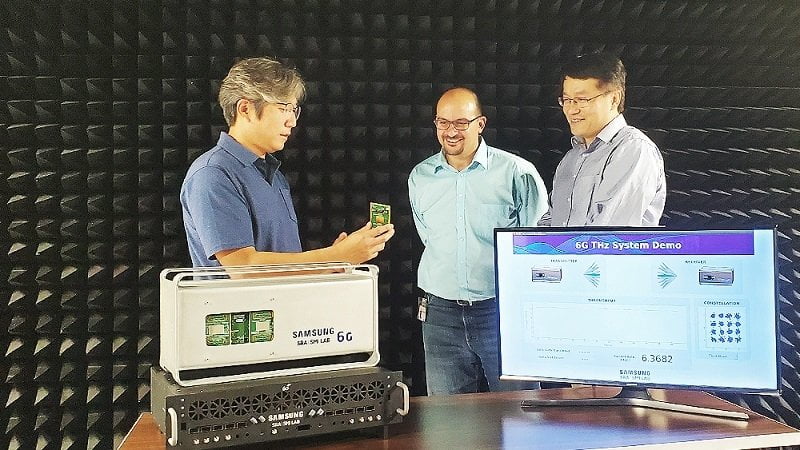
Samsung has been very ambitious with its 6G goal. To dedicate itself to the sixth-gen network ground it established the Advanced Communications Research Center back in May 2019. With its Hyper-Connected Experience concept, the South Korean firm envisions its 6G standardization by 2028, and the commercialization by 2030.
“Samsung has been at the forefront of technological innovation and standardization of 5G and 6G. As we shared in our 6G vision white paper last year, we believe new spectrum opportunities at the THz spectrum will become a driving force of 6G technology. This demonstration can be a major milestone in exploring the feasibility of using the THz spectrum for 6G wireless communications,” said Senior Vice President Sunghyun Choi, an IEEE Fellow, and Head of the Advanced Communication Research Center at Samsung Research.
6G And The Terahertz Factor
The prototype test system utilized an end-to-end 140 GHz spectrum. Besides, it was also using a fully digital beamforming solution and delivered a throughput of 6.2 Gbps across 15-meter.
The current 5G networks operate in the frequency range up to 40 GHz. Meanwhile, 6G would occupy a spectrum above 100 GHz (in the terahertz spectrum). That will give it an immense broadband capability than that of 5G.
To elaborate, terahertz frequency is less in use, and higher frequency translates to higher broadband capability. If the preliminary test can result in 6.2 Gbps, a full-fledged 6G network operating in the terahertz frequency could clock up a theoretical 1 Tbps (125 Gbps) each second out of smartphones.
Checkout: 2G, 3G, 4G and 5G Explained Simply
What Does 6G Mean For Us?
It could be challenging to convince its public use for sure. With 5G already promising ultra-high speed with almost 0 latency, it is hard to reason what 6G could possibly mean for most of the normal users.
Most broadband use is limited to social media which does not demand very high bandwidth speed. As for others, internet consumption may comprise video uploading, downloading large files, and streaming. But the available 3G/4G and fiber plans can cover these needs. Most of the time the issue with the internet is not much with the bandwidth speed as it is with the consistency and latency/ping but that can be sorted by setting up local servers.
It is obvious that the next-gen wireless mobile networks such as 5G and 6G would bring monumental improvement on mobile broadband performance. But only time will show how telecom operators could justify the consumption of 5G and 6G’s ultra-high broadband to mass consumers.
Read this: 5G Trial begins in India with Airtel and Jio’s 1Gbps Speed
When Will 6G Launch?
We cannot expect a 6G launch before the 5G hits major regions across the world. That means the sixth-gen network will see its groundwork running behind the curtain for at least two to three years. But major telecom equipment players such as Huawei, Ericcson, Nokia, and Samsung have gradually stepped up their 6G efforts.
Nokia is teaming up with the University of Technology Sydney (UTS) to work on 5G and 6G at the university’s Tech Lab campus in Sydney, Australia. Another key player Huawei is said to be launching test satellites for 6G testing. Meanwhile, Samsung has now gained crucial momentum. So we may fancy telcos to introduce 6G before 2030, but that with a ‘caution.’
The fervor around the 5G has not thawed let alone go commercial around the world but the 6G race is already up and running. What is your perspective on insuring 6G movements, is it necessary or undeniable? Let us know in the comments below


